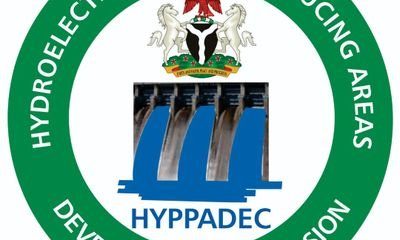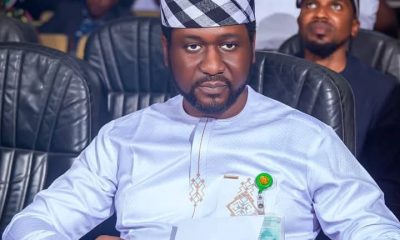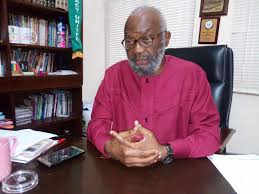COVER
Suspected Herdsmen Kill Three in Ogun

From Kunle Idowu, Abeokuta
Amule Kanji village in Imeko Afon Local Government Area of Ogun State was on Sunday night thrown into grief when suspected gunmen believed to be herdsmen killed no fewer than three persons in the community.
The victims – Tunde Taiwo, John Taiwo and Femi Bara, sources said, were reportedly attacked at about 11pm, while returning to Ologede village on a motor cycle.
Confirming the incident, the Balogun of Imeko Isale, Chief Ganiu Akinyele said the killer herdsmen were part of those who attacked Igangan which is just a few kilometres away from Amule Kanji village, the scene of the gory incident.
The assailants were reported to have left an AK-47 rifle at the scene of the incident and went away with the victims’ motorcycle.
Akinleye further said that the remains of the three victims had been evacuated by the Police, saying that the killer herdsmen have relocated to Sagada village in Imeko.
“You know there was a crisis in Igangan yesterday, those herdsmen who escaped to Imeko through our forest reserves killed three men on Sunday night,” he said.
“The three victims ran into these fleeing herdsmen, who killed them. They even took the victims’ new motorcycle away, leaving their old one, behind”.
“We saw empty AK-47 cartridges at the scene on the incident. A formal report has been made at the police station in Imeko and the police have gone there to take the corpses”.
“This is getting too much. We can no longer sleep in our houses. The herdsmen are everywhere. Government should come to our rescue. The Amotekun operatives in Imeko are too few. We need help”.
He explained that the herdsmen who escaped after killing people in Igangan are now in Ogun State, adding, “They camp in a village called Sagada, under Oke Agbede in Ward 2”.
Though, sources said the victims were evacuated from the scene, but the Police Public Relations Officer in Ogun state, Abimbola Oyeyemi, said the Command had no knowledge of the incident but promised to get back, as at Press time.
Digital Technology Key to Reducing Crude Oil Production Cost – FG
The Federal Government says deployment of digital technology is key to reducing the Unit Operating Cost (UOC) of producing crude oil in Nigeria to 10 dollars per barrel by December 2021.
Permanent Secretary, Ministry of Petroleum Resources, Mr Bitrus Nabasu, made the assertion yesterday, at the ongoing 2021 Nigeria International Petroleum Summit (NIPS) in Abuja.
The News Agency of Nigeria (NAN) reports that the summit has at its theme: “From Crisis to Opportunities: New Approach to the Future of Hydrocarbons”.
Nabasu said: “As the demand for energy increases at an astronomical rate, the quest for deployment of innovation and technology to keep pace with the demand increases.
“The oil and gas industry utilises these innovations and trends to increase the efficiency of operations and reduce costs.
“Most oil and gas companies overrun in cost and time. The use of digital technology can help companies manage over-spending and operations, meeting deadlines and ultimately increasing overall productivity.”
According to him, with the uncertainty triggered by the COVID-19 pandemic, the current objective of the oil and gas industry is maintaining sustainable profitability.
He said some of the digital technologies and innovations that had helped in this regard include Artificial Intelligence, Big Data and Analytics, Robotics and Automation, 3D Modelling, Cloud Computing, Blockchain technology, amongst others.
“These technologies do not come cheap. No doubt, there are huge costs involved in the deployment of innovation, but those companies that make it a priority reap the benefits.
“According to a research by McKinsey, effective use of digital technologies in the oil and gas sector could lead to reducing capital expenditures by up to 20 per cent and operating costs in the upstream by three to five per cent.
“Therefore, digital technology should be placed at the core of the business strategy in the industry,” Nabasu added.
Also, Mrs Betty Ugona, Chief Innovation Officer, Research, Technology and Innovation Division, Nigerian National Petroleum Corporation (NNPC), said digitalisation was one of the NNPC strategies to curb high cost of operations.
Ugona said the division was set up to provide research support to the NNPC following the impact of the COVID-19 pandemic on crude oil production and how best to overcome the challenges.
On his part, Mr Michael Zhaung, Managing Director, Hauwei Nigeria, said Hauwei was committed to digitalisation of the oil and gas industry in Nigeria.
He said Hauwei would continue to partner with oil and gas companies in Nigeria to provide real time monitoring of oil and gas infrastructure in order to reduce vandalism and oil theft. (NAN)
COVER
Guinea Insurance Reports N1.42bn Revenue Growth in H1 2025

Guinea Insurance says it generated N1.42 billion revenue growth in the first half of 2025, representing a 12.38 percent increase from N1.27 billion recorded in the same period of 2024.The company announced this through a corporate disclosure through the Nigerian Exchange Ltd.
Profit after tax for the six months period declined by 198. 95 per cent to a loss of N114.7 million from a gain N115. 9 million reported the previous year.The company’s total asset grew from N5.704 billion in the first half of 2024 to N6.97 billion in 2025.Total liabilities stood at N1.86 billion, down from N1.85 billion in June 2024Earnings per share (EPS) of the company dropped to 1.44 kobo from the EPS of 1.46 kobo reported same period last year.N278.07 million was generated as investment income.(NAN)COVER
Benue killings: Police Burst Bandits Hideout, Recover Rifles

From Attah Ede, Makurdi, Joseph Amedu, Lokoja and Dan Amasingha, Minna
Operatives of the Force Intelligence Department–Intelligence Response Team (FID–IRT) have apprehended two notorious illegal arms dealers and some bandits who participated in the recent herdsmen attack on Yelewata community and recovered a cache of deadly weapons in Abinsi town, Guma Local Government Area of Benue State.
The Force police public relations officer (FPPRO), Muyiwa Adejobi who disclosed this in a statement yesterday in Abuja, said the Police operatives successfully intercepted and dismantled a notorious arms supply syndicate responsible for arming bandits in Benue State and other North-Central States. Adejobi explained that on June, 21, operatives of the FID-IRT acting on credible intelligence on the activities of some bandits who participated in the Yelwata killings, stormed the hideout of the bandits in a forest at the boundary of Kardako, Nassarawa State and Yelwata in Benue State.He maintained that a fierce gun duel ensued causing the bandits to flee with various degrees of gunshot injuries and in the process 2 GPMG were recovered from their hideout in the process He added that on July 8, 2025, operatives of the Force Intelligence Department – Intelligence Response Team (FID-IRT), in a tactical operation, along the Lafia–Makurdi expressway in Makurdi, Benue State, arrested one Abubakar Isah, aged 25, found in possession of 3 AK47 rifles and 1002 rounds of 7.62mm live ammunition.According to him, the arrest followed actionable intelligence indicating an impending arms movement intended for distribution to bandits groups known to be terrorizing various communities in Benue State.”In furtherance of Police investigation on the deadly attacks by bandits on communities in Benue State, Police operatives have again successfully intercepted and dismantled a notorious arms supply syndicate responsible for arming bandits in Benue State and other North-Central States.”Further investigations revealed that the arms and ammunition were supplied by a notorious arms dealer, Jacob Adikwu, operating from Abinsi, Guma Local Government area of Benue State, and was to be delivered to one Dan Hassan, a bandit kingpin known for orchestrating deadly attacks against communities across Benue, Nasarawa, Kogi, Niger, and Kwara States.”In another related development, on the 12th of July, 2025, FID-IRT operatives acting on credible intelligence arrested one ibrahim AKA Chelsea, who confessed to have sent the sum of Six Million Five Hundred Thousand Naira( 6,500,000) to the same Adikwu Jacob, Six Million Naira (6,000,000) being payment for delivery of 2 AK47 rifles and 2000 rounds of live ammunition, while Five Hundred Thousand Naira (500,000)would serve as payment for construction of a compartment in the Volkswagen vehicle to conceal the said arms for transportation to Kwara State. “In a swift follow-up clearance operation, the operatives stormed Abinsi town and successfully apprehended Jacob Adikwu on 16th July 2025 and recovered three (3) AK-47 rifles, 220 rounds of live ammunition and a volkswagen car from his hideout. Further investigation carried out by the operatives on the 17th July 2025, led to the recovery of additional five (5) AK-47 rifles, one rocket launcher, and 1000 rounds of live ammunition from the same arms dealer.Adejobi maintained that efforts were being intensified to ensure Dan Hassan and other criminal elements responsible for terrorizing Benue State and other parts of the country are brought to book, while others in custody will have their day in court upon conclusion of investigation.He added that the Inspector-General of Police, Kayode Egbetokun, commended the operatives for their doggedness at all times, and reiterated that there will be no hiding place for those who profit from the bloodshed of innocent Nigerians.Kogi, Kwara Security Joint Forces Arrests 12 Suspected Kidnappers, One InformantTwelve suspected kidnappers and one informant have been arrested in a coordinated security operation carried out across parts of Kogi and Kwara States.This was disclosed by the Kogi State Commissioner for Information and Communications, Kingsley Fanwo through a press statement yesterday in Lokoja.He said the suspects were apprehended during a series of raids jointly executed by the Hybrid Force from the Office of the National Security Adviser and Officers and Men of the Forward Operating Base (FOB), Egbe. The operations covered Isanlu-Esa and Okoloke in Yagba West Local Government Area of Kogi State, and Patigi, Lafiagi and Gbugbu in Kwara State.The statement identified the suspected kidnappers as Mainasara Abubakar, Sadik Abubakar, Jude Sani, Sanda Abubakar, Lawali Usman, Tukur Shehu, Hassan Abubakar, Kabiru Surajo, Makiri Dodo, Bala Hassan, Umaru Sanda, and Ruwa Abubakar. Also arrested was Rabiu Makeri, who is believed to be an informant for the gang.According to the statement, the security forces engaged the suspects in a fierce gun battle, during which some of the kidnappers fled, abandoning their motorcycles and kidnap victims. Several kidnapped women were successfully rescued during the confrontation.The Commissioner further assured the public that the arrested suspects will face full prosecution after investigations, reaffirming the state’s zero-tolerance stance on criminality.In a separate remark, the Executive Chairman of Yagba West LGA and ALGON Chairman for Kogi State, Hon. Tosin Olokun, expressed gratitude to Governor Ahmed Usman Ododo for providing the logistics and support that enabled the success of the operation.“Governor Ododo promised to restore peace to Yagba West and Yagba as a whole. Today, he has backed those words with decisive action. We can now heave a sigh of relief. The people of Yagba are grateful for his leadership and the results it is delivering,” Olokun said.The Kogi State Government emphasized its ongoing commitment to working with federal and regional partners to ensure the safety and security of all communities within the state.Cholera Outbreak Claims 13 Lives over 236 hospitalized in Six Niger LGAsA Cholera outbreak has been reported in parts of Niger State that has claimed twelve lives and led to the hospitalization of about 236 patients.It was gathered that the outbreak was first reported on Sunday in Shiroro local government area of Niger State.The water borne disease has claimed over 12 lives as of Wednesday from over four local government areas of the state.Sources disclosed that the worst hit local government areas are Minna, Bosso, Shiroro, Magama, Bisa and Munya Local government councils.The Health care official noted that over 239 people have been afflicted by the disease and are currently receiving medical attention across several primary healthcare centres across the affected councils.Worried by the development, the State government has opened an isolation centre at the old wing of late Senator Idris Ibrahim Kuta primary healthcare centre along old airport road Minna.Confirming the development, Commissioner of primary healthcare, Dr. Ibrahim Ahmed Dangana said the State government has swung into action by setting up a multi sectoral approach to halt the epidemic in the six local government areas.The Commissioner disclosed that, a treatment and isolation centres has been set up in each of the affected local government areas with a view of arresting the spread.”We have set up treatment and isolation centres to mitigate and also embarking on aggressive sensitization exercises”The campaign is now targeting religious bodies like CAN and Islamic bodies and the entire eight Emirates of the State.”The Commissioner commended Governor Mohammed Umar Bago for his commitment and all the donor agencies for coming to the aid of the State.Collaborating with the Commissioner, Director of public health Ministry of tertiary health care, Dr. Ibrahim Idris said Chanchaga (Minna) Bosso and Shiroro local government area are the worst hit Councils.COVER
CBN Holds MPC Meeting, Maintains Lending Rate at 27.5%

The Central Bank of Nigeria (CBN) has, once again, kept its key lending rate, known as the Monetary Policy Rate (MPR), at 27.5 percent.The Governor of CBN, Yemi Cardoso announced the decision yesterday in Abuja, following the 301st Monetary Policy Committee (MPC) meeting.Cardoso said that all 12 MPC members voted unanimously to hold all key monetary parameters.
The committee, thus, retained the cash reserve ratio at 50 percent for deposit money banks and 16 per cent for merchant banks. It also retained a liquidity ratio at 30 per cent, and the asymmetric corridor was held at +500/-100 basis points around the MPR.With this decision, the MPC has retained the rates for three consecutive meetings. (NAN)
































